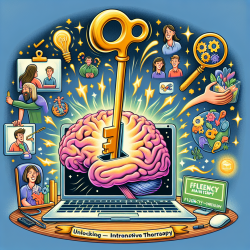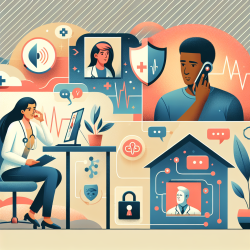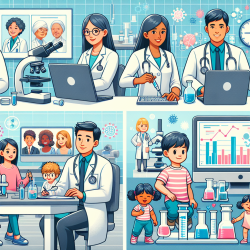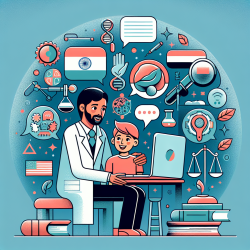The landscape of speech therapy is evolving rapidly, and technology is at the forefront of this transformation. As Speech Language Pathologists (SLPs), it's essential to stay informed about these advancements to better serve our students and meet the ever-changing demands of our profession.
At TinyEYE, we are committed to leveraging technology to provide superior online therapy services to schools. This blog will delve into the myriad ways technology is revolutionizing speech therapy, bringing joy and efficacy to our practice.
The Benefits of Online Speech Therapy
Online speech therapy offers numerous advantages that traditional methods may lack. These include:
- Accessibility: Students in remote or underserved areas can receive high-quality therapy without the need for travel.
- Flexibility: Sessions can be scheduled at convenient times, reducing disruptions to the student’s school day.
- Consistency: Online platforms ensure that therapy sessions are consistent, regardless of external factors such as weather or transportation issues.
- Data Tracking: Digital tools allow for seamless tracking of student progress, making it easier to adjust IEPs and tailor therapy plans.
Innovative Tools Enhancing Speech Therapy
Technology provides a range of tools that enhance the efficacy of speech therapy. Some of the most impactful include:
- Interactive Apps: These apps make therapy sessions engaging and interactive, helping to maintain student interest and motivation.
- Teletherapy Platforms: Secure, user-friendly platforms like TinyEYE enable SLPs to conduct sessions with ease, ensuring a professional and effective experience.
- Speech Recognition Software: This software assists in accurate speech therapy evaluations, providing real-time feedback and data collection.
- Virtual Reality (VR): Though still emerging, VR has the potential to create immersive environments for practicing speech and language skills.
Overcoming Challenges with Technology
While technology offers many benefits, it also presents challenges that must be addressed. Common issues include:
- Technical Difficulties: Ensuring reliable internet connections and functioning hardware is crucial for uninterrupted sessions.
- Training and Adaptation: Both SLPs and students may require training to become comfortable with new technologies.
- Privacy Concerns: Maintaining confidentiality and compliance with regulations such as HIPAA is essential when using online platforms.
Case Study: Success with Online Therapy
Consider the case of a rural school district that implemented TinyEYE’s online therapy services. The district faced significant therapist staffing shortages, making it difficult to meet the needs of students requiring speech therapy. By integrating TinyEYE’s services, the district was able to:
- Provide consistent therapy sessions to all students in need.
- Track progress efficiently through digital tools.
- Adapt IEPs more effectively based on real-time data.
The result was a marked improvement in student outcomes and overall satisfaction among parents and educators.
Conclusion
Technology is transforming speech therapy in ways that bring joy and improved outcomes to both students and therapists. By embracing these advancements, SLPs can provide more effective, accessible, and engaging therapy services. At TinyEYE, we are proud to be at the forefront of this exciting evolution, helping schools and students thrive.










